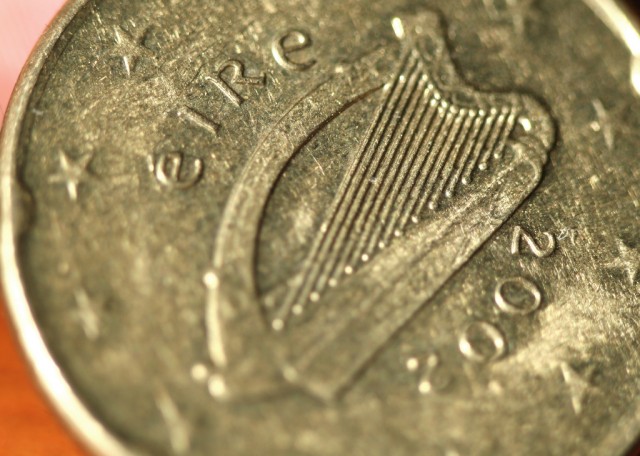Meet the “grand architect” behind Ireland’s tax avoidance policy for tech firms
Feargal O’Rourke: “I’m a player in this game and we play by the rules.”

The "Double Irish" is a creative accounting technique that legally allows companies to reduce their overseas tax burden.
Google in particular has recently expanded its use of the practice, which has come to be known as the “Double Irish." The company moved nearly $12 billion in 2012 alone, saving billions in taxes.
How did this system come to be? According to a new feature by Bloomberg’s Jesse Drucker, one of the world’s leading experts on these international tax shenanigans, Ireland’s “grand architect” of taxation is none other than a highly politically connected Irish financial consultant named Feargal O’Rourke.
The 49-year-old Irishman is the head of the PricewaterhouseCoopers tax services practice in Ireland. He advises the Irish government and corporations including Google.
O’Rourke comes from a longstanding line of Irish powerhouse politicians. His mother, Mary O’Rourke, is a longtime veteran of Irish government. Among other positions, she served from 2002 until 2007 as the leader of the Seanad Éireann, the upper house of the Irish legislative body. Mary O’Rourke’s late brother, Brian Lenihan, served as Tánaiste (deputy prime minister), minister for foreign affairs, and minister for justice. One of Lenihan’s sons, the late Brian Lenihan, Jr., also served as Finance Minister from 2008 to 2011.
These days, O’Rourke remains a staunch defender of both his own practices and of Ireland as a whole.
“Under no circumstances is Ireland a tax haven,” O’Rourke told Bloomberg. “I’m a player in this game and we play by the rules.”
The tax expert seems to be parroting a line often repeated by Google and other firms, which no one denies. What these companies do is legal. However, last November, a British member of parliament echoed a common sentiment while slamming Google’s northern European operations chief during a committee hearing. "We're not accusing you of being illegal, we are accusing you of being immoral.”
In the Bloomberg piece, O’Rourke seemed to suggest that it’s not Ireland’s fault that American law allows for this practice of incorporating in other countries with lower tax rates.
“Why should Ireland be the policeman for the US?” he asks. “They can change the law”—he snaps his fingers—“like that! I could draft a bill for them in an hour.”Since the 1990s, Ireland has successfully attracted multinational companies (notably Apple, Dell, Intel, and Microsoft among others) to its shores. The country’s unemployment rate has dropped significantly over that time. However, O'Rourke doesn’t see representing private companies and providing advice to government officials as a conflict of interest.
“Advisers advise, ministers decide,” he said.
As Drucker reports, the devil is in the details. There's no denying Irish policy has caused a boom in American tax avoidance:
Ireland’s transformation into a hub for tax avoidance can be seen in US Commerce Department data. In 2010, US companies attributed $95 billion in profits to Irish subsidiaries, up more than sevenfold from $13 billion in 2000. Actual employment at those units barely grew during that decade, and the companies’ reported tax rate plummeted to three percent from nine percent.O’Rourke knows that these practices—low domestic business taxes and the “Double Irish” technique—may not last forever. As he wrote on Twitter earlier this month: “It will be potential US tax reform changes in 2016 that may force our hand.”
Many of the Irish subsidiaries have no offices or employees and pay no income taxes. They are merely ways to move profits out of countries where sales take place to mailbox subsidiaries in zero-tax island havens.



No comments:
Post a Comment